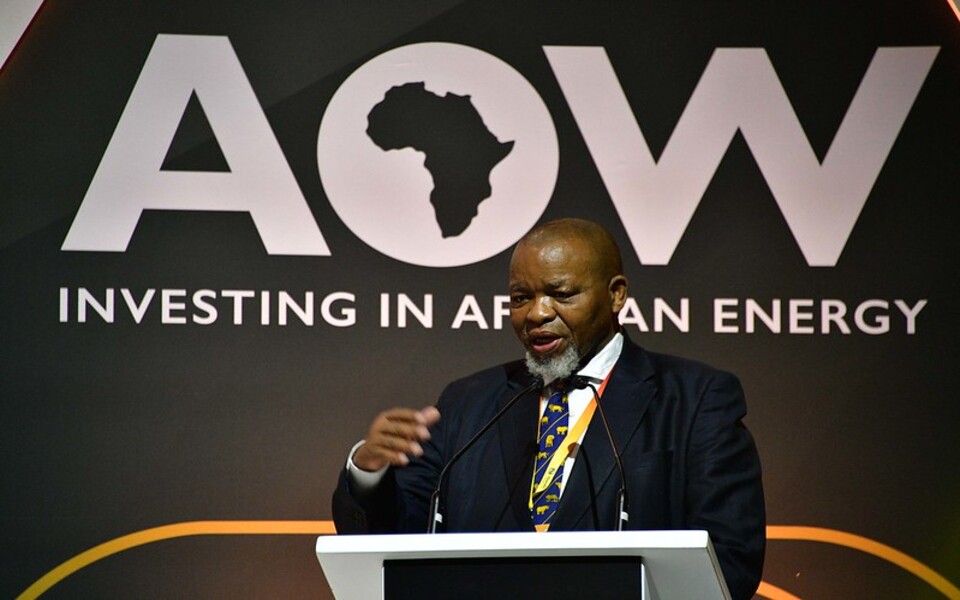This article was first published in the Financial Mail on 12 June 2025.
One of the many problems with US President Donald Trump and his legion of acolytes is that their antics tend to make other serious issues pale in comparison. Free countries the world over can look across the pond and think, well, we may have problems, but at least we don’t have those problems.
This is dangerous, because it has the potential to make us complacent about the state of our own democracy. It also emboldens those with Trumpian tendencies — and there are plenty such leaders in South Africa, in both the political and corporate spheres.
Trump and others in his circle regularly rail against environmental NGOs, accusing them of standing in the way of economic growth and energy security. Bloomberg reported in April that the White House was preparing (for release on Earth Day) a slew of executive orders that would remove the tax-exempt status of some green NGOs, and the foundations that fund their work.
The executive orders have not yet been signed; it appears that some on the Right think that this tactic might result in unpleasant blow-back for right-wing nonprofits should the Republicans lose the next election.
But it seems that this is the kind of move that South Africa’s oil and gas sector, and the minister who “regulates” it, would love to be able to pull.
Mineral & petroleum resources minister Gwede Mantashe is notorious for attacking environmental NGOs that oppose his “game-changer” oil and gas fantasies.
He has previously claimed that they are funded by the CIA “to block development in a poor country like South Africa”, and he famously described the legal challenge against seismic surveys as “apartheid and colonialism of a special type”.
In opening remarks at the Southern Africa Oil & Gas Conference in March 2025, Mantashe said: “Gas and oil have played second fiddle to other energy sources for far too long in our country and on the continent. This has often resulted in foreign NGOs wanting to veto development.”
The facts are as irrelevant here as they are in the White House. Facts like his department’s endless bungling of the regulatory environment for oil and gas exploration, and its failure to enforce legislated requirements for public participation.
But local players in the oil and gas industry have merrily jumped on this bandwagon.
On June 4, various of these players made presentations to the parliamentary portfolio committee on electricity and energy in a stakeholder engagement meeting on “Gas exploitation in the country and plans to address gas cliff”.
In a slide presentation to the committee, the South African Oil & Gas Alliance stated that section 43 of the National Environmental Management Act “enables foreign-funded environmental lobby groups to raise malicious/vexatious objections without its (sic) merits being ventilated before a work stoppage order is issued … In most democracies, foreign agents must be registered as such and declare their sources of funding.”
There is too much nonsense in that statement to properly address in a short column, but section 43 of that act permits an affected party to appeal to the environment minister against a decision made under the act. It is a mechanism for realising administrative justice, by affording those affected by regulatory decisions the opportunity to ensure that those decisions have been properly made.
Section 43 is equally available to oil and gas companies if a permit they apply for is refused. But they don’t need to rely on it, because the government almost never refuses authorisation for development of any kind, regardless of its impact or merit. And so it is left to NGOs to pick up the pieces and try to ensure that fair procedures are followed and relevant factors considered.
But for the oil and gas sector, there is nothing as irritating as due process.
Jaco Human, executive officer of the Industrial Gas Users Association of Southern Africa — presenting to the committee apparently on behalf of Business Unity South Africa (Busa) as chair of Busa’s gas energy committee — said: “The ability to stop any development is currently costing South Africa dearly in terms of attracting investment and making upstream access to gas possible … There’s some foreign interference, without a doubt, in some of these court cases which are essentially foreign funded, and I think sovereignty becomes very important for us as a country if we want to maintain access to gas.”
We have long since come to expect this kind of anti-NGO baiting from politicians. But it is even more disturbing when it comes from a representative of South Africa’s self-proclaimed “apex business organisation”.
If Human was representing Busa, I look forward to the association’s clarifying statement affirming its support for the constitutional right to just administrative action, and its recognition of the crucial role NGOs have always played, and continue to play, in holding power to account in South Africa.
IMAGE: GovernmentZA via Flickr CC BY-ND 2.0
